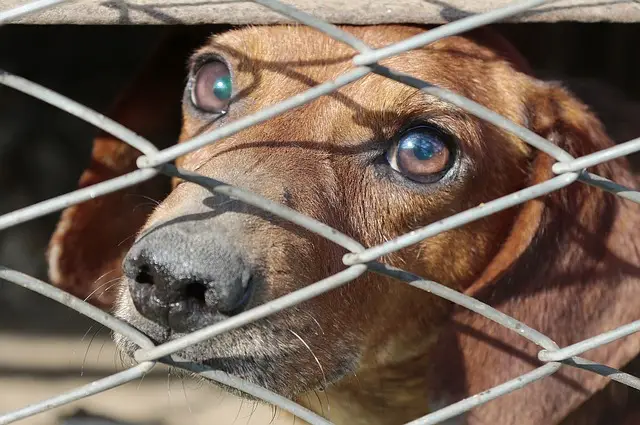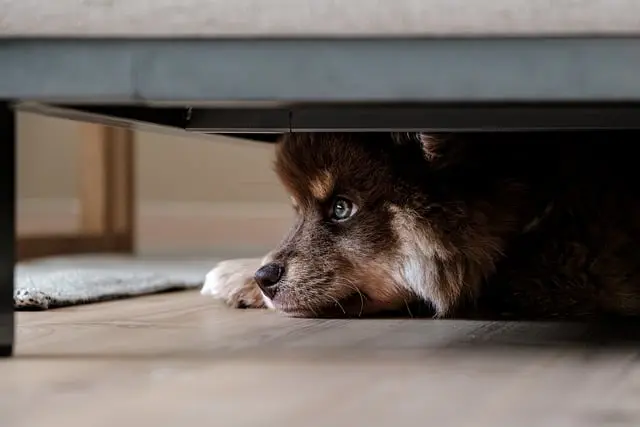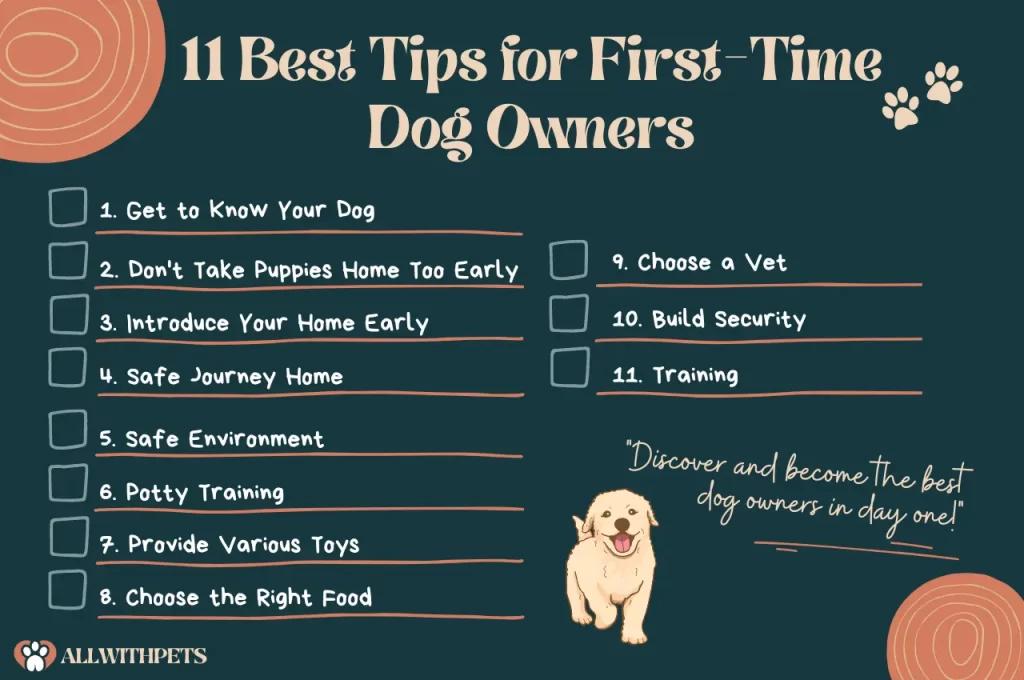
Did you know that nearly 30% of first-time dog owners feel overwhelmed within the first month of bringing their pet home? Owning a dog isn’t just about the fun moments; it’s about understanding their needs and providing the best care possible. Studies show that well-prepared owners are more likely to have happy, healthy pets. This article lets us dive into our comprehensive guide, ’11 Best Tips for First Time Dog Owners,’ and discover the secrets to raising a happy, healthy dog.
01
of 11
Get to Know Your Dog
As a 1st-time dog owner, you must first thoroughly understand the breeding history, health clearances, and socialization practices of your new furry friend. Select a professional, reputable breeder and ask for the dog’s history, behaviour, and medical issues and visit their facilities to see dog’s living conditions, understand their personalities, behaviours, and health conditions. try to learn about the dog’s original living conditions and spend time with the dog in various settings to gauge their temperament to ensures the dog is well-adjusted both physically and mentally and determine whether the dog fit your lifestyle well or not.
02
of 11
Don’t Take Puppies Home Too Early

Let a puppy stay with its mother and siblings for about 8-10 weeks. Puppies learn crucial social and behavioural skills from their mother and littermates between 8-10 weeks. This period is vital for developing social skills and bite inhibition. Early separation can lead to behavioural issues such as anxiety, aggression, and difficulty in training. Lack of socialization can lead to problems interacting with other dogs or even aggression. This is an essential tip for first time puppy owners.
03
of 11
Introduce Your Home Early
Introducing your home to your new dog before they officially move in can significantly ease their transition and reduce anxiety. If you are a first time dog owners, start by familiarizing the dog with your household scents; bring items such as clothing or blankets to the dog so they can get used to your smell. Visit the dog a few times before bringing them home to help them become comfortable with you.
Preparation Checklist for First time dog owners:
- Essentials: Bed, crate, food and water bowls, chew toys, grooming tools, dog pads
04
of 11
Safe Journey Home
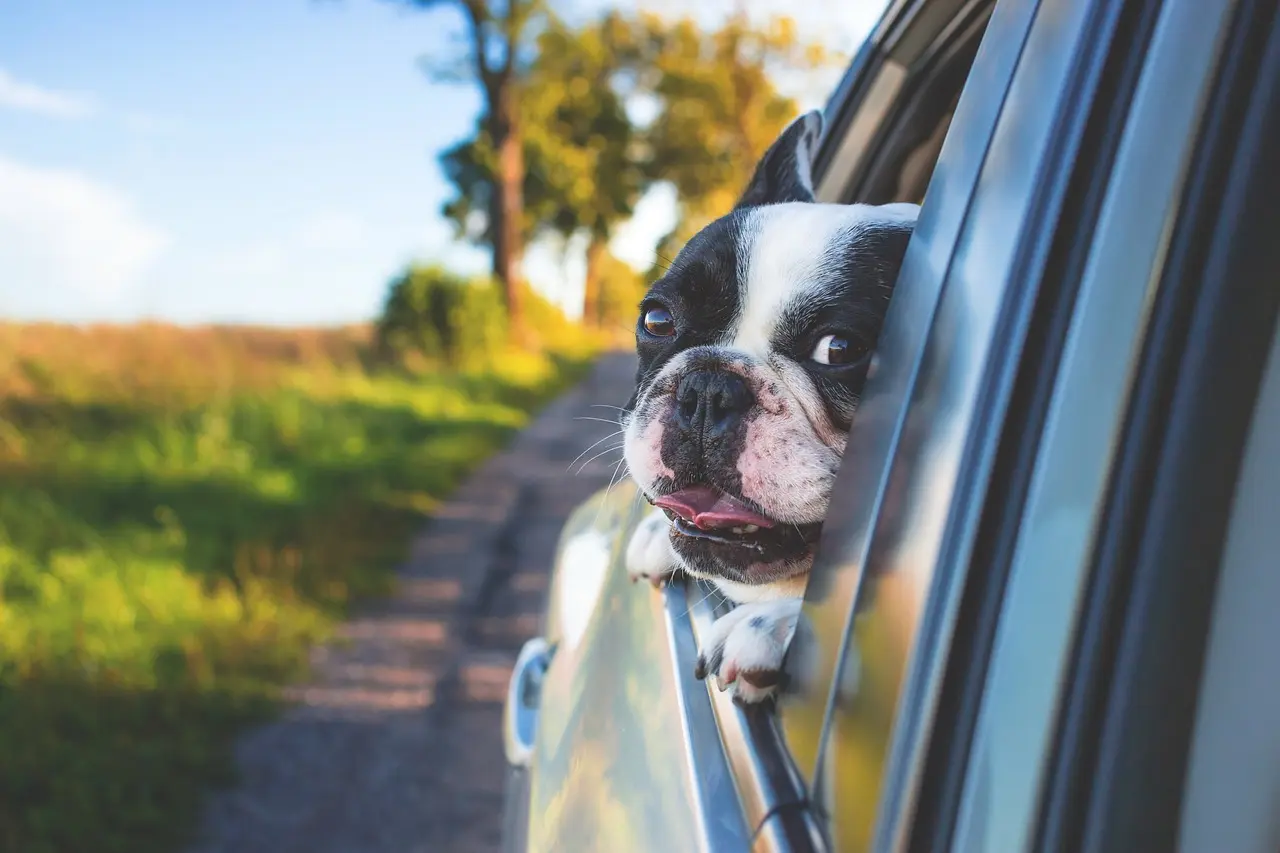
Ensure your dog’s trip home is safe and stress-free. Avoid any activities that might cause them anxiety. Feed them a couple of hours before the journey to prevent hunger and let them relieve themselves beforehand. Recommend that the first time a dog owner brings a companion to help monitor the dog’s condition, as unexpected situations can arise on the way home.
Use a travel crate with familiar scents from their original home to make them feel comfortable and ensure the crate is securely fastened with a seat belt. Remember to take frequent breaks during long trips to allow your dog to relieve itself and stretch. This is a handy tip for first time dog owners. Note that a bad first car experience can lead to a lifelong fear of car rides.
05
of 11
Safe Environment

Creating a safe environment for your new dog is crucial to their well-being and your peace of mind. Start by thoroughly dog-proofing your home: secure electrical outlets with covers, keep trash cans tightly closed and remove small objects that could be swallowed. First time dog owners must pay more attention to houseplants, ensuring they are non-toxic to dogs, as some common plants like lilies, poinsettias, and aloe vera can be harmful if ingested.
Setting up a designated dog zone can help keep your new companion safe and comfortable. Use a playpen to create a secure area with interactive toys, bedding, and items. This controlled environment prevents accidents and helps your dog acclimate to their new surroundings, promoting security and well-being.
Read More: 9 Household Dangers for dog’s safety
06
of 11
Potty Training
Potty training is a task unfamiliar to first time dog owners, but it must be completed. Consider using pee pads or a designated potty area. Without proper training, your puppy might develop habits like holding it in until they can go outside or having accidents around the house, creating unnecessary stress for both of you. Taking your dog out frequently would be best, especially after meals and naps. When your dog relieves himself outside, you can praise and reward him to let him know he did something right.
07
of 11
Provide Various Toys
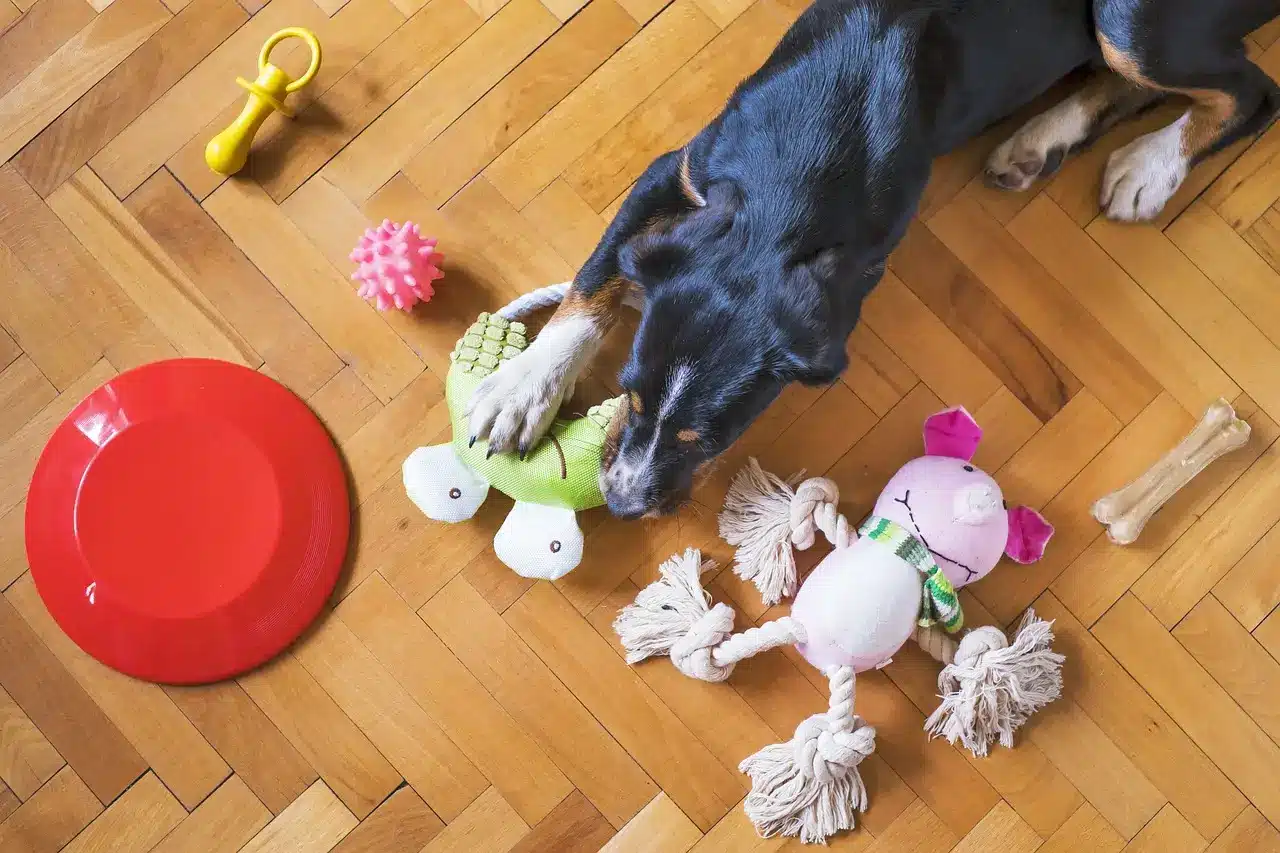
Puppies have a natural urge to chew while teething. Provide a variety of safe chew toys to find out what they like. Interactive toys that dispense treats can engage them mentally and physically. Also, have toys to play with together to strengthen your bond. Please choose the appropriate toys for your dog’s size to prevent choking hazards.
Toy Recommendations:
- Chewing: Durable chew toys for teething puppies
- Fetching: Balls and frisbees for physical exercise
- Mental Stimulation: Puzzle toys that dispense treats
08
of 11
Choose the Right Food
It’s important for first time dog owners to choose a food specifically formulated for your dog to ensure it provides them with the necessary nutrients to develop. When your dog comes home for the first time, preparing the same feed as before your dog came home is recommended. When choosing dog food, ensure the dog food meets or exceed the Association of American Feed Control Officials (AAFCO) nutritional standards, which you can determine by looking at the nutritional adequacy statement on the label. For first time dog owners, if you’re in doubt, consult your veterinarian to choose the best diet for your puppy’s breed, size, and health needs.
09
of 11
Choose a Vet
Find a nearby veterinary clinic that is clean, professional, compassionate, and force-free. Ensuring your dog’s vet visits are positive experiences will help prevent them from becoming fearful of the vet, making medical visits much less stressful for both of you. For first time dog owners, taking your new dog to the vet within the first week of bringing them home is recommended. Bring any medical records provided by the breeder or shelter. This initial check-up helps establish a baseline health status and allows the vet to plan future vaccinations, parasite prevention, and other necessary treatments.
10
of 11
Build Security
When dogs arrive at a new home, they often feel insecure in the unfamiliar environment. It’s highly recommended that first time dog owners stay with their dogs as much as possible during the first few days; you can establish a daily routine for feeding, potty breaks, playtime, and sleep to help your puppy feel secure and reduce anxiety. Ideally, please arrange for someone to stay with your new dog while you’re away or take a few days off to help them adjust and build a sense of Security in their new home. Gradually increase the time your puppy spends alone to prevent separation anxiety. Start with short periods and slowly extend the duration.
11
of 11
Training
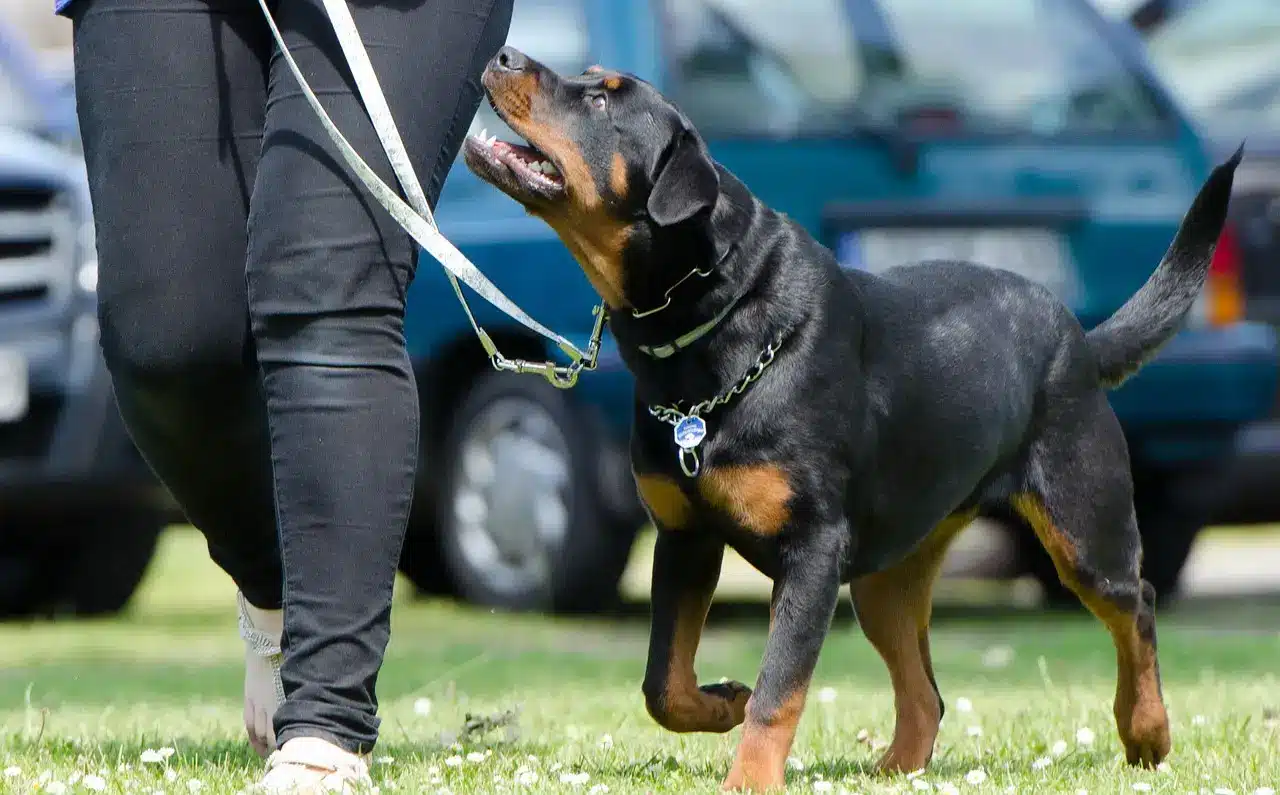
Training your new puppy is essential for establishing a harmonious and happy household. Start with basic commands such as sit, stay, come, and leave, using consistent words and gestures to avoid confusing your dog. Positive reinforcement techniques are highly effective; use treats, praise, and playtime to reward your dog for good behaviour. Be patient and avoid punishment, as it can create fear and anxiety, hindering the training process. First time dog owner may face many challenges, don’t hesitate to seek help from a professional dog trainer who can provide personalized guidance and support.
Conclusion
Remember, the journey of a first time dog owner is filled with learning experiences for you and your furry friend. Every step is crucial, from choosing the breeder or adoption agency to ensuring a safe environment and practical training. If you prepare thoroughly and approach dog ownership with the right mindset, you’ll be able to avoid common pitfalls and enjoy a fulfilling relationship with your dog. Also remember to read our 20 Things That dogs hate to avoid some of the mistakes that new dog owners make.


